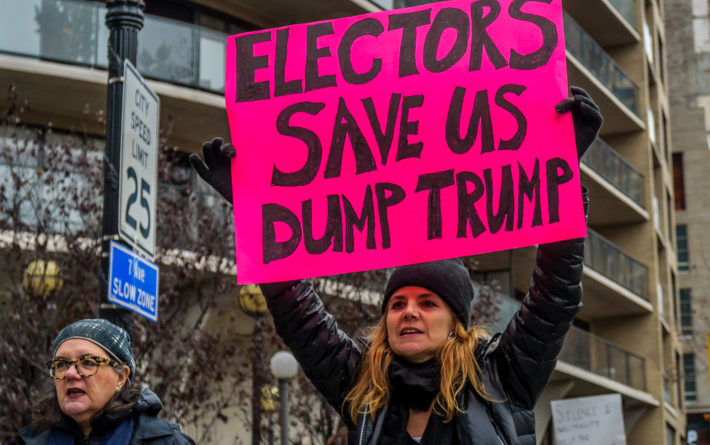Kerby Anderson
The Supreme Court recently heard oral arguments concerning a case involving faithless electors. The president is elected by electors who travel to their state capitol and are supposed to vote according to the wishes of the voters.
What if those electors change their vote? That is the case being considered by the Supreme Court. A Colorado elector planned to cast a vote for a different candidate in 2016. The Secretary of State removed him, but the Tenth Circuit Court of Appeals ruled that Colorado could not enforce electors’ pledges. When electors did the same in Washington, they faced a fine. The Washington Supreme Court upheld the fine.
Faithless electors have been rare, but they might prove to be very significant if we have another close presidential election. On my radio program, I have to remind my younger listeners that the Supreme Court had to step in during the 2000 election. If you are older, I am sure you remember all the debate about “hanging chads” and Florida ballots.
Although the 2016 election wasn’t quite as close, it was certainly controversial. Groups of protestors took to the streets. A number of celebrities produced commercials urging electors not to vote for Donald Trump. Dozens of members of Congress skipped the presidential inauguration. Can you imagine what might happen this time if the vote is close and vote counts in certain states are challenged? A few electors could change their pledged vote and throw the decision to the House of Representatives.
How will the court vote? The justices may decide that states can require electors to vote according to their pledge. Or they might agree with some of the comments made by Alexander Hamilton in the Federalist Papers who saw the electors as an intermediary between the voters and the Presidency. Their decision could affect the next presidential election.
 Listen Online
Listen Online Watch Online
Watch Online Find a Station in Your Area
Find a Station in Your Area











 Listen Now
Listen Now Watch Online
Watch Online
